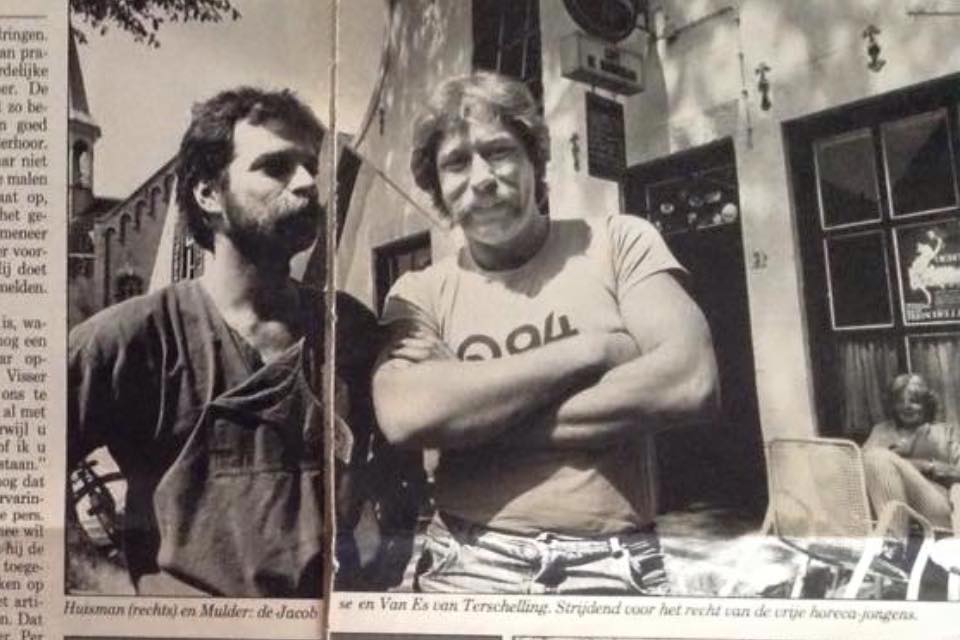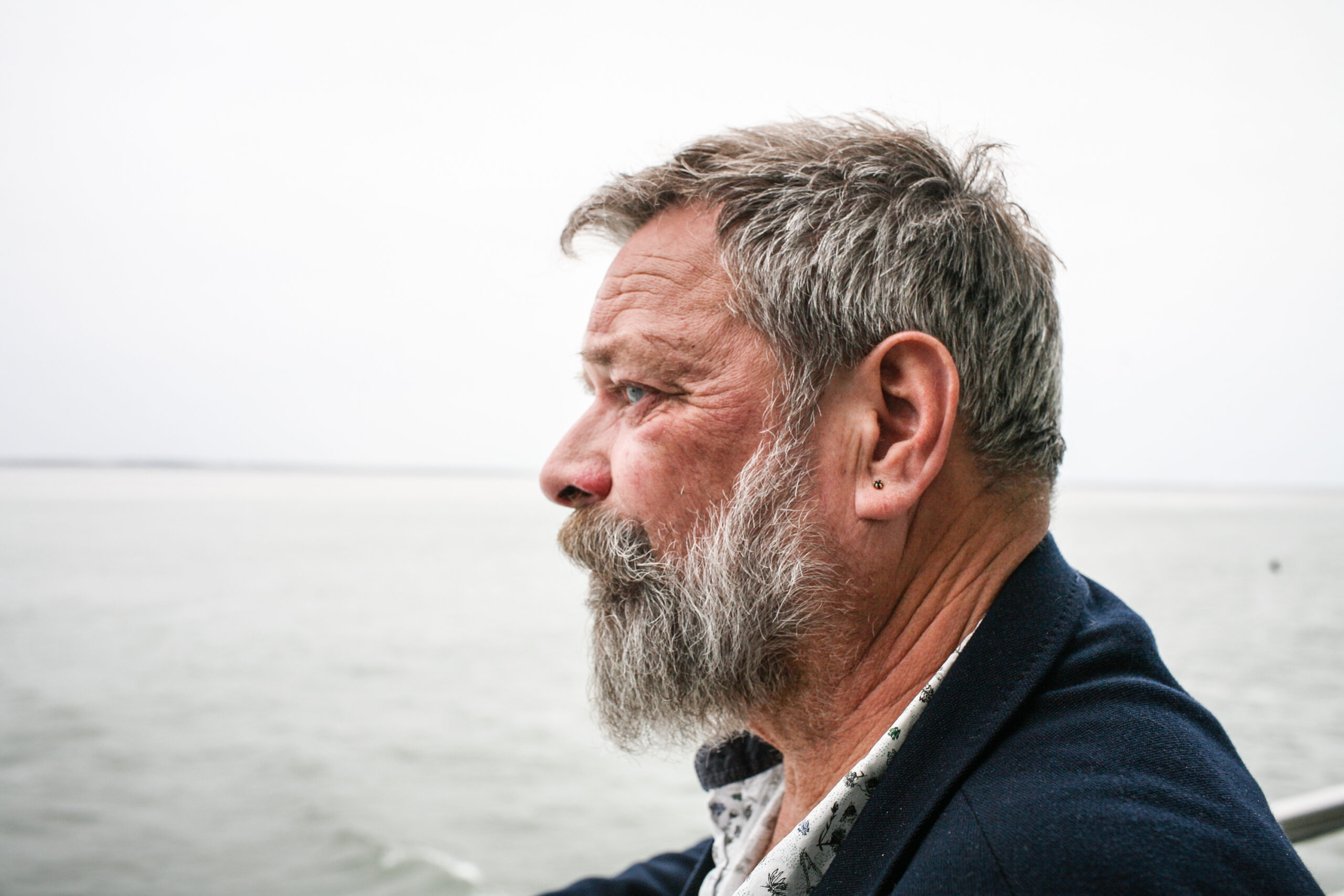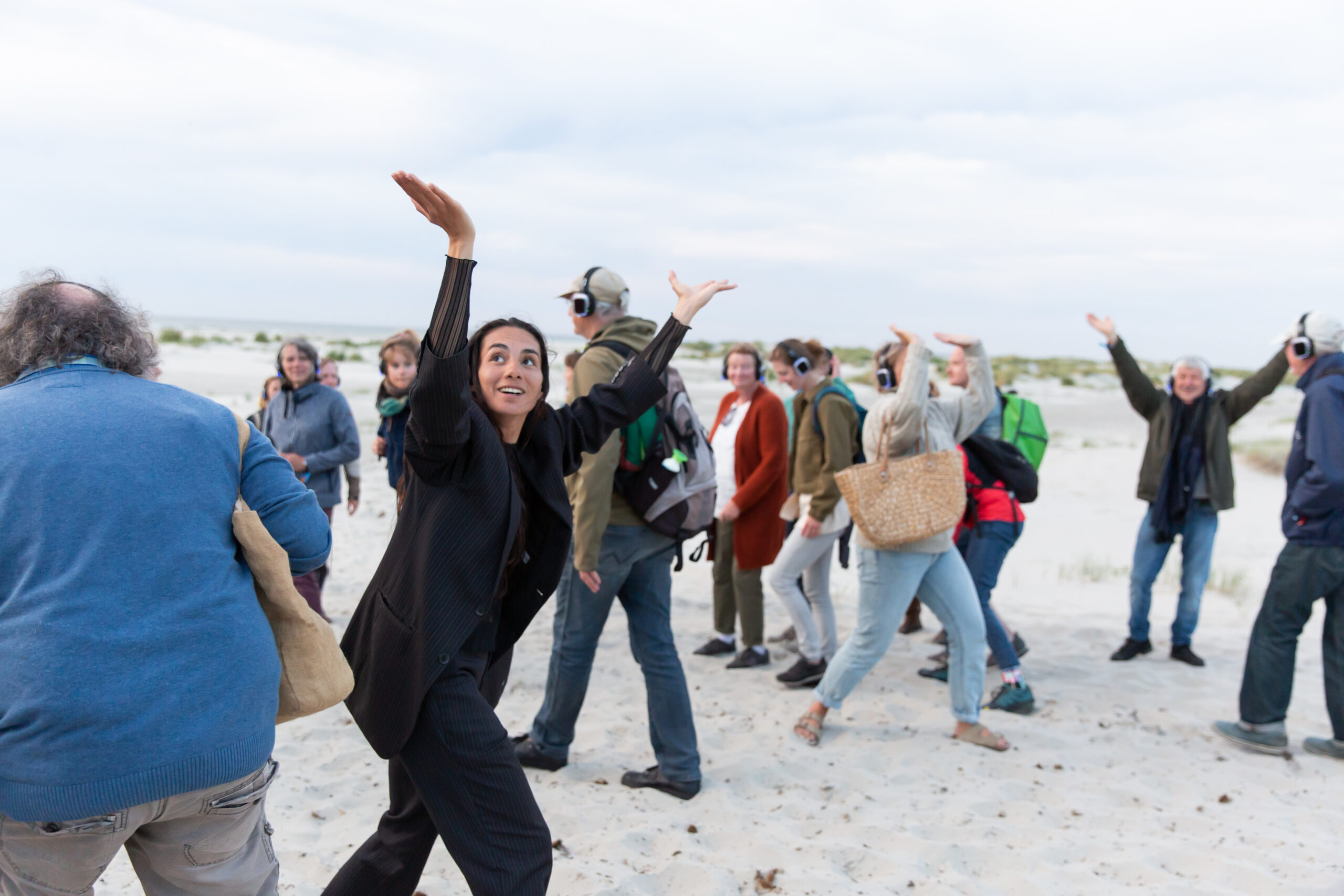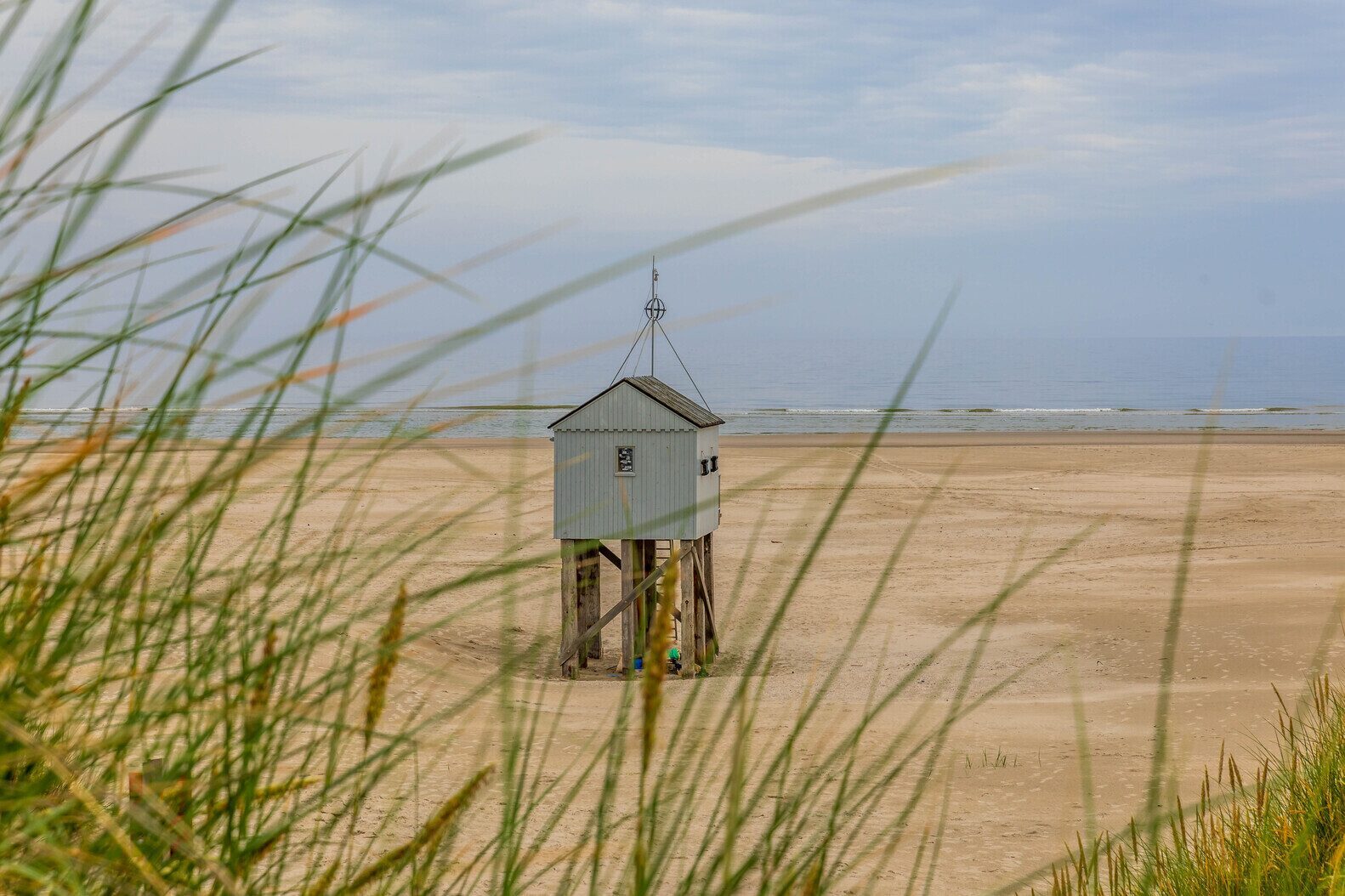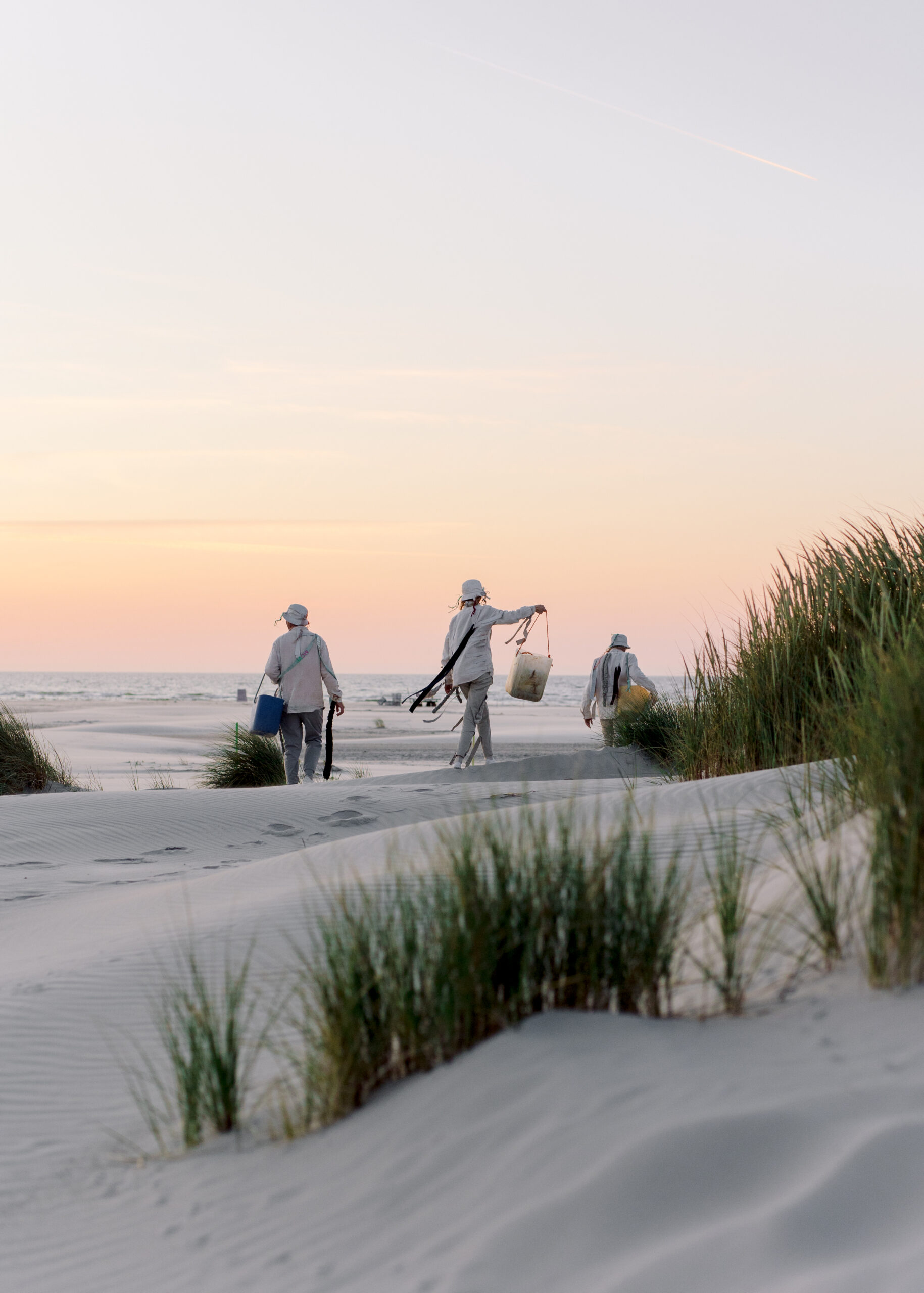Oerol Festival has grown since 1982 to become the largest site-specific arts festival in Europe – and all this on a small Wadden Sea island in the north of the Netherlands.
Each year, the festival attracts around 50,000 visitors and provides space for both premieres by established groups as well as work by young makers. The diverse programme of approximately 25 site-specific performances, street theatre, music, visual arts, storytelling, talks, and deepening experiences, makes Oerol more than just a festival; it is a breeding ground for site-specific theatre, with the nature and culture of Terschelling as its main protagonist. Street theatre fills the villages with circus and spectacle, Expeditions allow you to discover the island through art installations, and festival hub de Deining is the beating heart of the festival on the North Sea beach.
The name ‘Oerol’ originates from an old Terschelling tradition, where in the spring, livestock grazed ‘oerol’ (meaning ‘everywhere’ in the Terschelling dialect) in the meadows outside the villages. Although the tradition disappeared after the Second World War, the name lives on in the festival.
